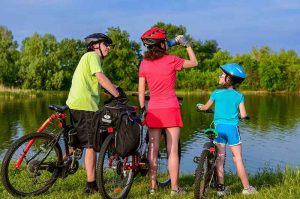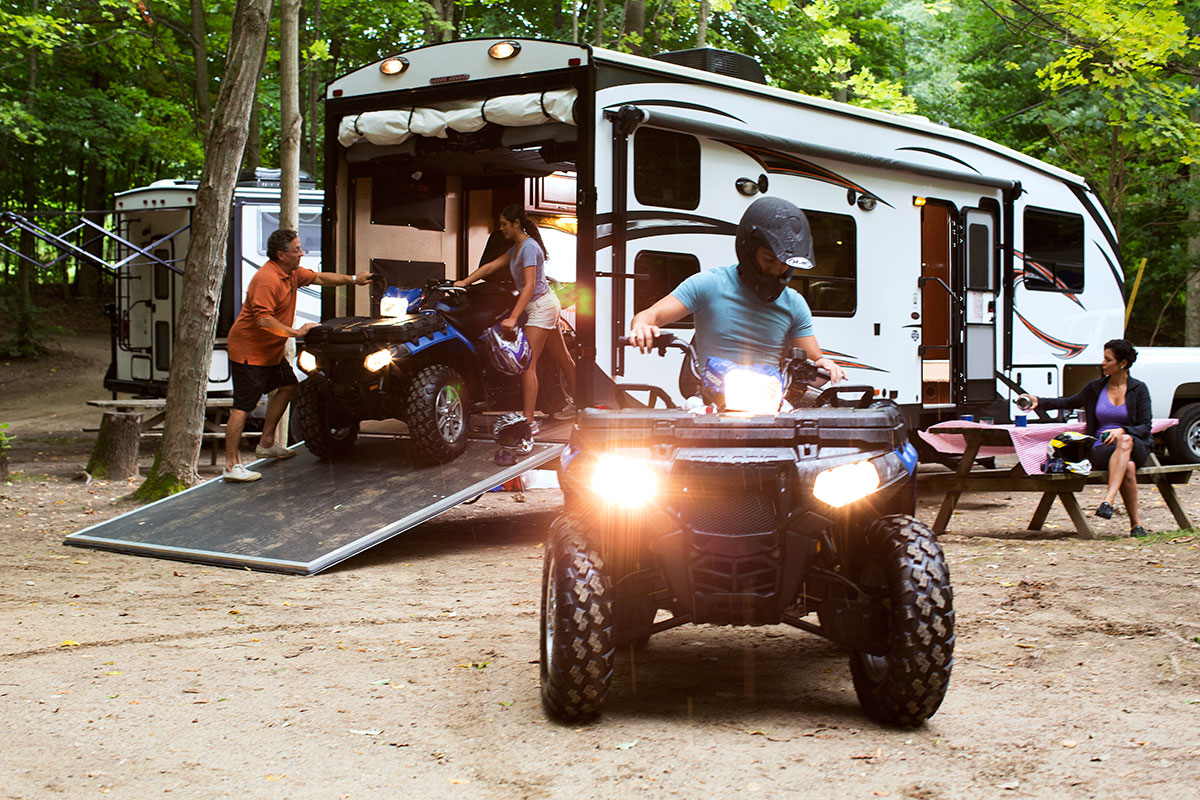Fail doesn’t stand for “First Attempt In Learning” for nothing.
There is no more humbling experience than when we utterly fail and make a big mistake. We like to think of ourselves as intelligent, proficient, and capable. But sometimes, even despite our best efforts, we just aren’t. And when you are towing a trailer or driving a motorhome, setting up camp, and enjoying the great outdoors, you need to make sure you avoid as many risks of failure as possible.
Mistakes usually happen as a result of (1) inexperience; (2) not being prepared; (3) lack of paying attention; or (4) out of left field. This article focuses on 1-3. Whether you’re an experienced RVer or just starting out, here are some RV mistakes that others have made so that you can avoid making the same mistakes.
- Not paying attention to clearance. Here’s a video of a truck pulling into a gas station and completely taking off the top of his travel trailer, crushing his truck, and collapsing the gas station roof. Now this is a bit extreme, but the lesson applies. It’s the same story with bridges. This should be common sense, but we can be overconfident, distracted, or simply miss a sign. Your RV model GPS, or a travel app, should be able to help you avoid roads with low or small bridges and steep inclines. Your site, whether you’re at a campground, RV park, or RV resort, may have low hanging trees or tight areas. Pay attention at all times, and ask for your copilot’s assistance in identifying hazards and helping you navigate around them, both on the road and at the campground.
- Not checking your tires. Sometimes we’re just busy. Sometimes we’re rushed. Sometimes we just take our tires for granted because they have never caused any problems. It’s essential to check your tire pressure and signs of general wear and tear. Replace immediately if necessary. Check your spare tire, too, in case you ever have to use it. Include a patch kit with your other supplies. A faulty tire or a blown tire can be a very dangerous situation for yourself and surrounding vehicles, as well as cause expensive damage to your RV. See our other article about caring for your tires.
- Not securing everything inside. It’s true that RVs are built with storage in mind, but vibration and road conditions can mess things up in a hurry. During travel, it’s important to (1) have everything organized so that you can more easily (2) secure it. Food in the refrigerator, for instance. Pack items closely together and place liquids on the door or bottom shelves so that they are snug and won’t tip over. Don’t forget to lock the door! As for cabinets and doors, again, pack items closely together. The use of grip waffle matting on the inside will help keep things in place, and don’t hold off on replacing a broken door latch if you can help it. See our other article about organization hacks.
- Too much weight. How you pack your RV will affect how it travels, which can cause a danger to you and your RV if it’s not done well, so you need to pack intentionally. A well-balanced RV holds up better in poor weather and tows or drives less awkwardly, plus you’ll know where to find something because it’s in the same place every time. First, check your manuals to find out how much weight your axle(s) can carry. Load heavy items first so that they are low and spread out evenly across the RV. Since included appliances, i.e., stoves, are heavier and already in place, counter the weight by packing more on the other side. Weigh the coach prior to packing to understand how much extra weight you can load on and after packing to make sure you are within the acceptable limit.
- Not having your toolbox ready. If you want to avoid spending way too much time in a shop when you can fix it yourself – or at least get you home or to your next stop – a toolbox is a must-have. A socket wrench, screwdrivers, standard pliers, channel-lock pliers, small drill bit set, claw hammer, pocket knife, wire cutters, tape measurer, and a level are all essential tools that can help given your particular situation. Batteries, plumber’s tape, ball hitch lube, super clue, vinyl adhesive, threadlocker glue, and sealant are also good to have on hand.
- Using the wrong toilet paper. And cleaning supplies. Your RV’s septic system requires more consideration than just picking up the regular household brands at the supermarket. Choose toilet paper that is quick dissolving and preferably biodegradable. Look for “RV and Marine Toilet Tissue” on the label. A clogged system isn’t fun for anyone, on either end, and can be costly to repair.

When out in the great outdoors, we can experience failure when we…
- Don’t thoroughly check the intended trail ahead of time. Whether you’re planning on taking a hiking trail or a water trail, make sure you know what to expect. This requires some research to ensure that where you want to go will work with your experience, physical shape, and for all members of the group. For instance, a water trail has several launch points. From a simple map, it’s difficult to tell how easy or how advanced the river may be between each launch point. There may be quick-moving rapids that are beyond the skill and courage of your group. Don’t be surprised! Do your research: Ask locals for their advice, visit forums, check more than one website in order to get the details about where you’re heading. Challenges are good, but if you have any reservations, choose another trail. It’s better to take the extra time to find an alternative and keep everyone safe.
- Don’t pack the right equipment. You wouldn’t try to kick a baseball around a field instead of a soccer ball, so why wouldn’t you have all the right equipment handy for when you travel in your RV, live in your RV, and go out and do fun activities? Prepare for your travels and outings by thoughtfully packing what you think you will be really need or there’s a good change you will need it in an emergency. Most importantly, dress for the weather.
- Don’t bring a map. Your phone or GPS could have no signal, fall in the water, get smashed by a rock, the list could go on. Don’t rely on your electric devices for navigation. Bring along a hard copy map, too, both of the general area and of the specific area you’re hiking, biking, or paddling.
An RV is your portable home, your escape pod, a place from which to experience the great outdoors in new, different places. Everything isn’t going to go right all the time, and there is always something we could do better. If you end up with making a mistake, it’s important to look at it as an opportunity for growth. Learn from it, move on, and don’t let it take away from the fun!

